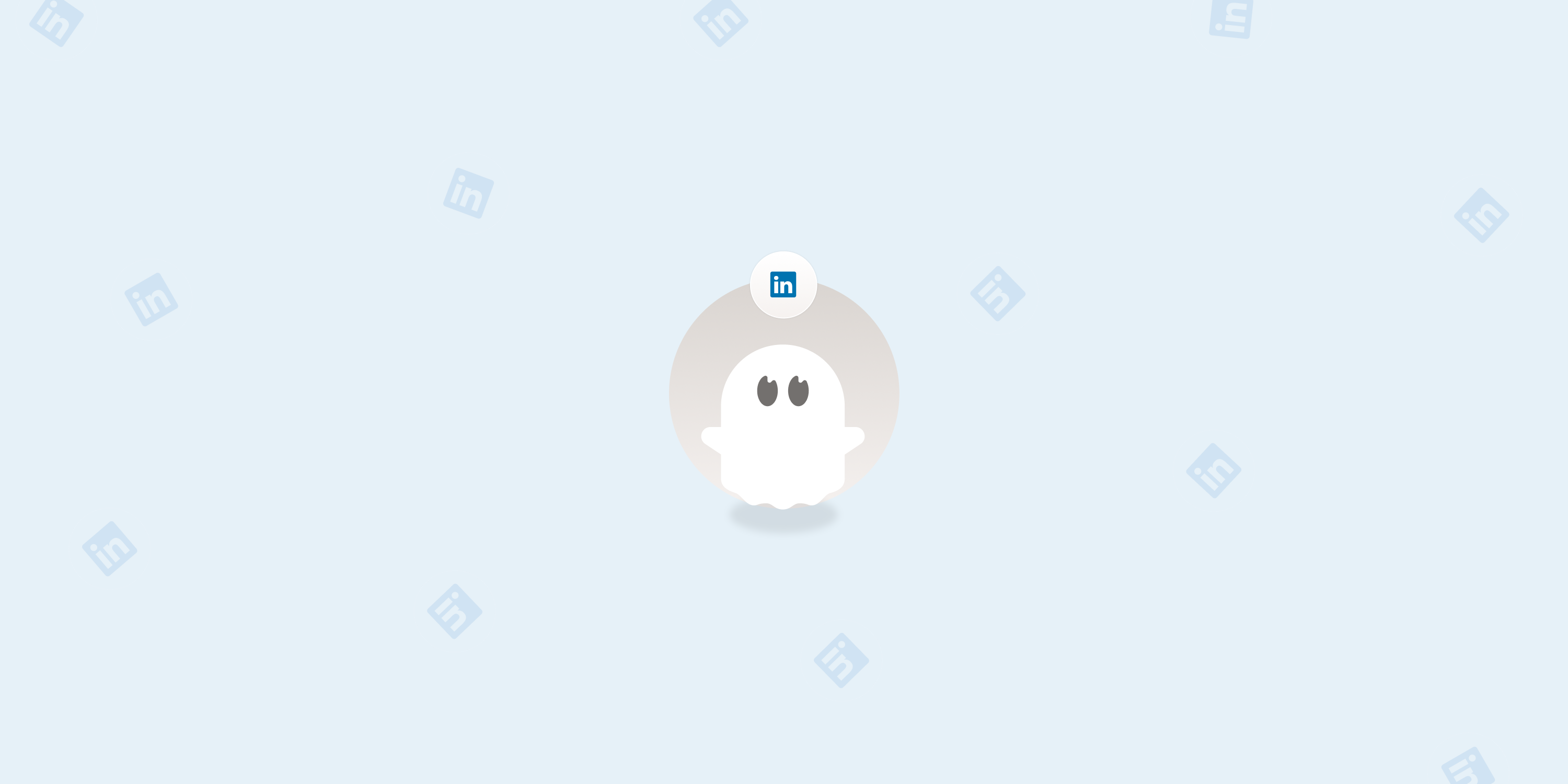Tutorial
Index
Give the URLs of the web pages you're interested in
You have two options:
1. Process a single web page
Enter your URL directly into the Phantom's setup. Then, set up one selector for each element you want to extract.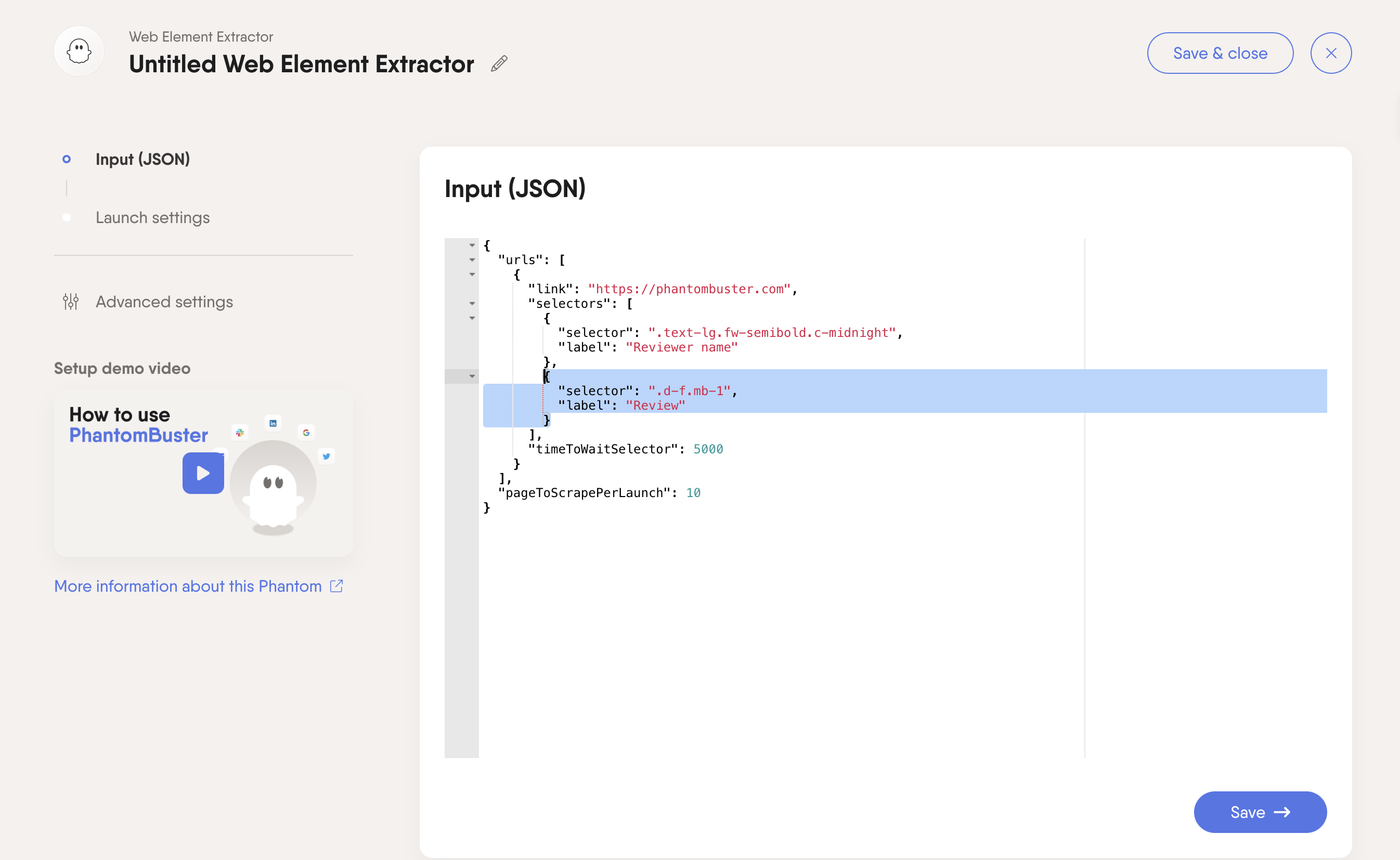
2. Process multiple web pages
Create a spreadsheet with Google Sheets. Copy the web page URLs and paste them into your spreadsheet - one URL per row, all in column A.
Make this spreadsheet public, so PhantomBuster can access it.
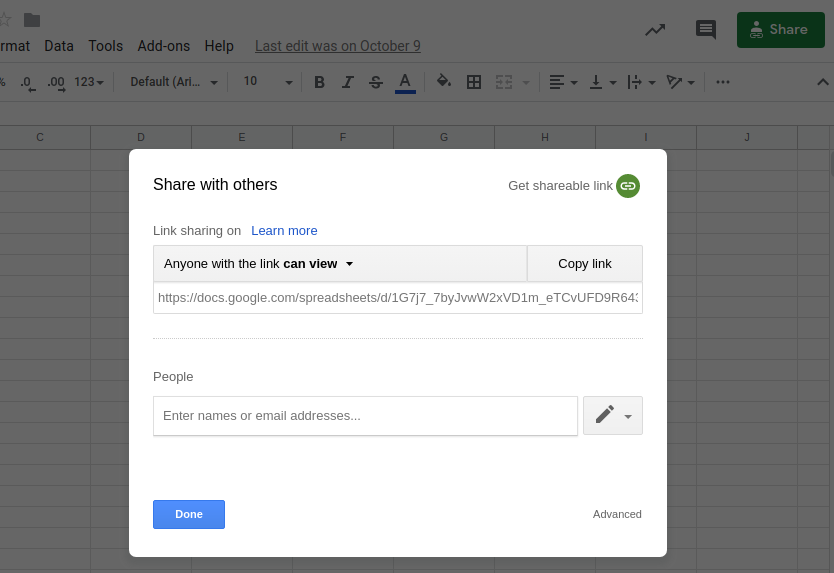
Copy the spreadsheet URL and paste it into your Phantom's setup.
Identify the web elements you want to scrape using CSS selectors
CSS selectors are the best way to precisely select any region or specific element of a web page. You can find the CSS selector of the web element you're interested in within the code of the page you're scraping.
For example, say you want to extract all the recipe names from a specific page on a recipe site. Here's how to find the CSS selector for the recipe name element:
Right-click anywhere on the page and select Inspect. This will open the Developer tools on the right side of the browser.
To make sure you've got the correct selector, click on the arrow in the top left of the Developer Tools window.
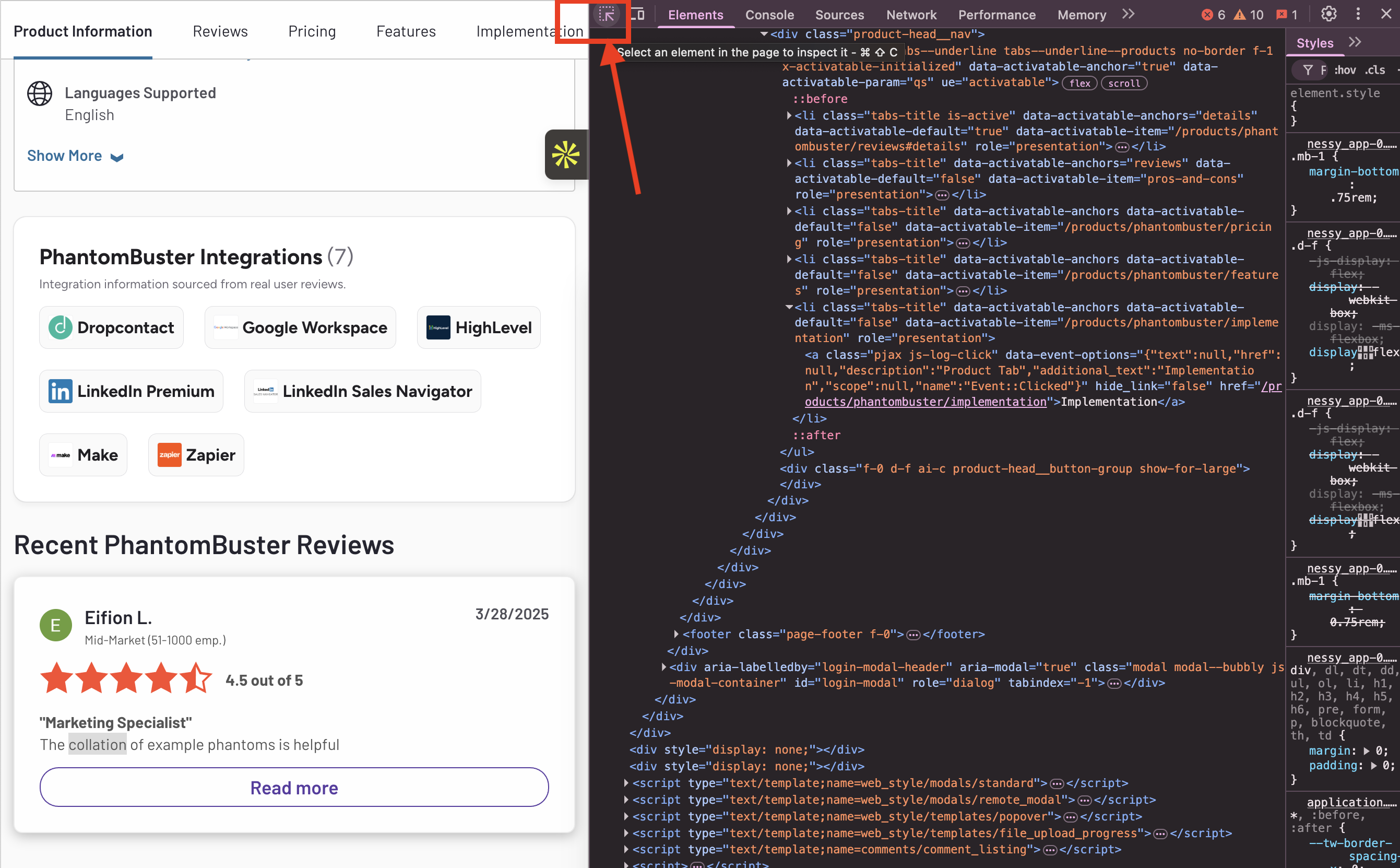
Hover over the element you're interested in and find the CSS selector at the top of the pop-up window, or click on the component and find it highlighted in the Elements tab of the Developer Tools window - e.g.
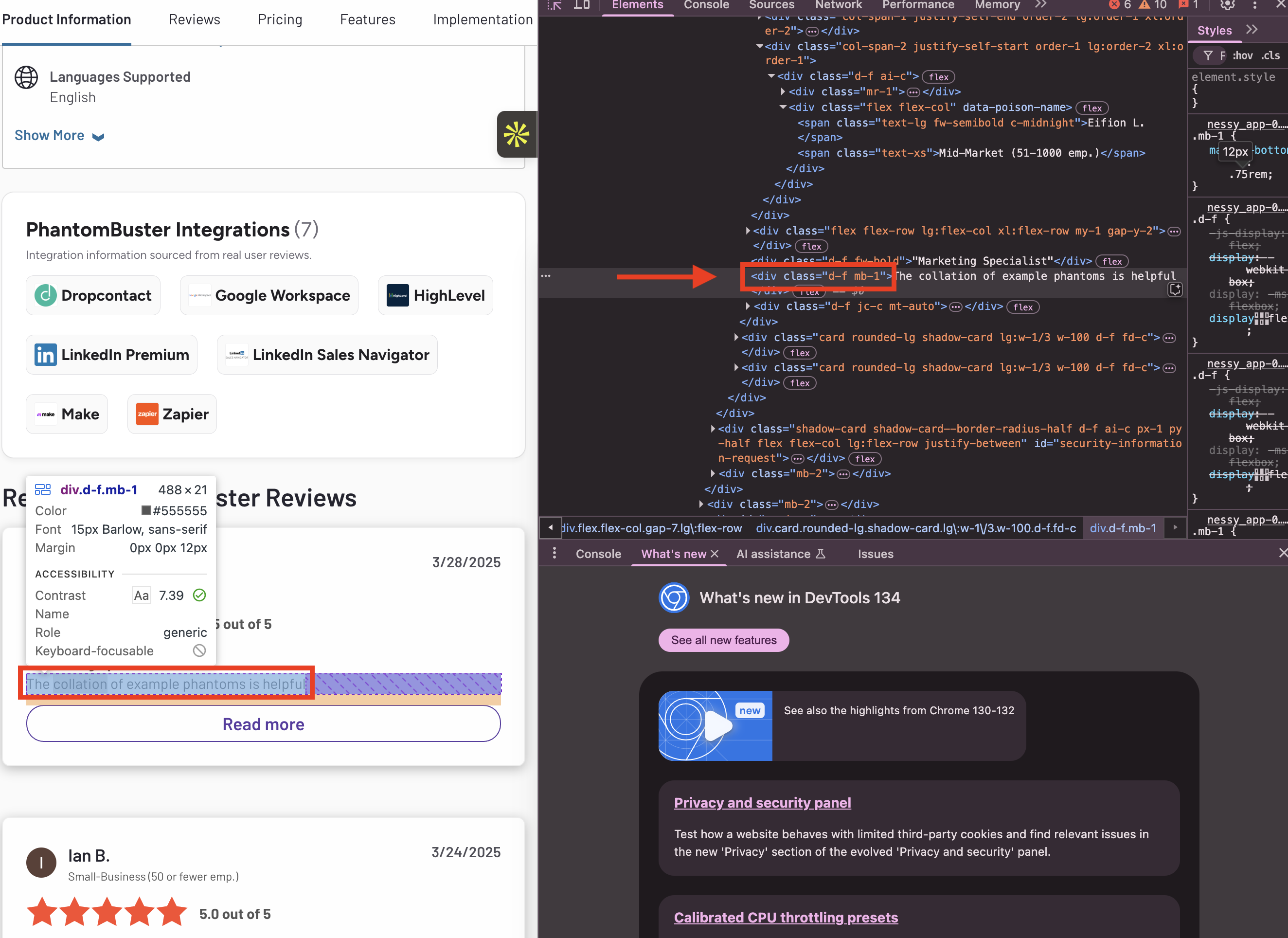
Copy the selector and paste it into the Phantom's setup
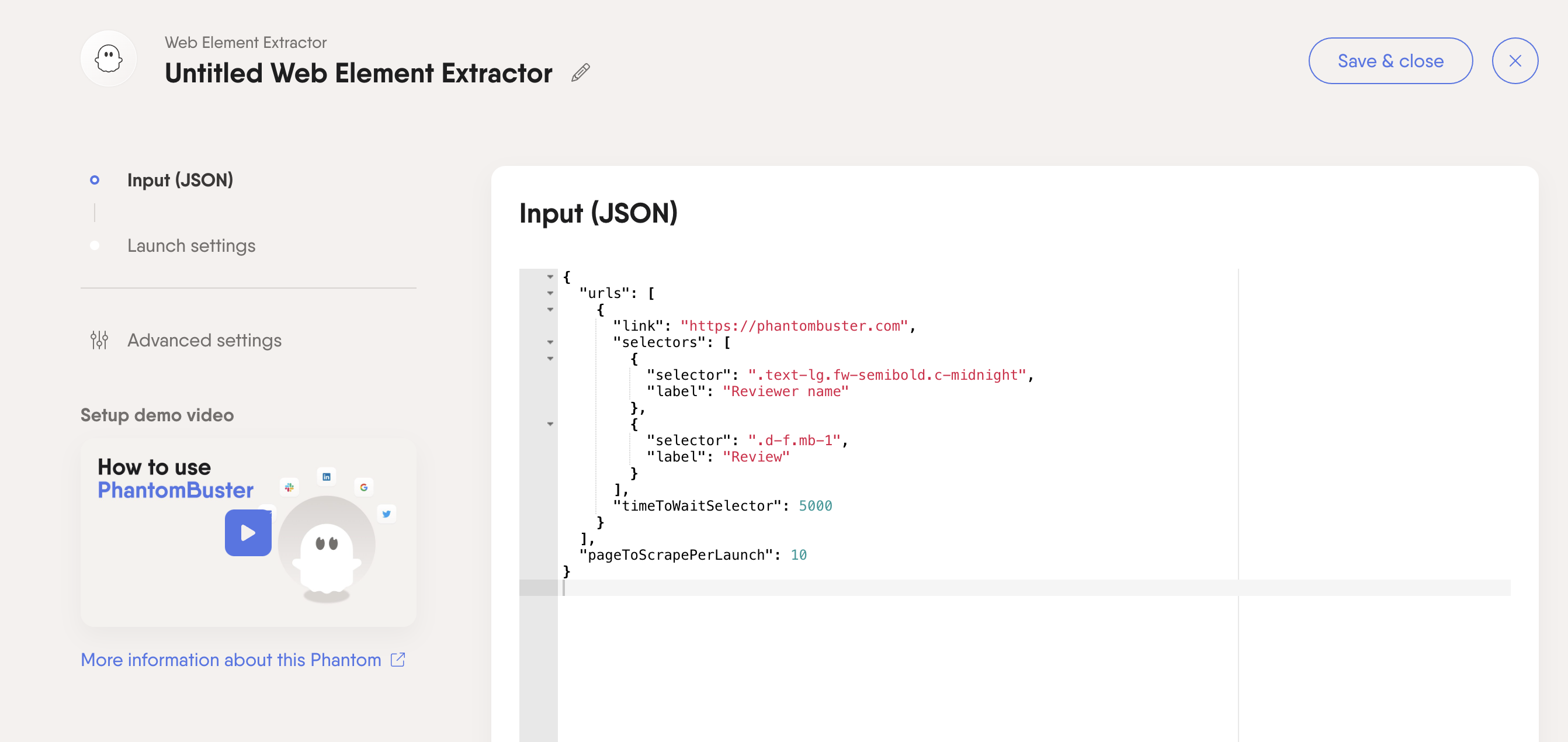
The Phantom will now extract all instances of the element identified by this CSS selector. You can add a label to the web element you're extracting so that it is easily identifiable in your results file.
To extract additional elements from the page, copy the selector and label text and add as many selectors as you need, separated by a comma.
{
"selector": ".add selector here",
"label": "add label here"
}How to use the Domain Name Finder
PhantomBuster’s Domain Name Finder Automation uses public search engines to find a company’s main website domain. This short tutorial walks you through setting inputs, processing options, scheduling, and retrieving results.
Matching limitations:
Returns one main domain (best match) per company. Country & Language settings guide search context but cannot strictly restrict results to specific TLDs (e.g., .fr).
Input requirements:
Google Sheets must be public (anyone with the link); CSV URL input is available on paid plans only. No session cookies are required.
Performance & Safety:
Processes ~14 domains per minute using 1 slot. Search engines may temporarily block shared IPs if requests are too frequent; if stopped, wait ~15 minutes or use a proxy.
Free plan limits:
CSV exports include only the first 10 rows. JSON exports, dynamic CSV download links, and CSV uploads as inputs are unavailable.
Provide the company names:
Choose an input source (My Lists, manual names, a Google Sheet/CSV URL, or My Phantoms), then optionally set Country & Language to guide the search context.
For spreadsheet/CSV inputs, the Phantom reads column A by default. To target a different column, specify its header name in the input settings.
Configure processing settings:
Add any domains to ignore, set how many companies to process per launch for spreadsheet/CSV inputs, and optionally rename the results file.
"Number of companies to process per launch" applies only to spreadsheet/CSV inputs (default 100). Renaming the results file between launches will create a new file and restart processing from scratch.
Select launch frequency:
Run manually, schedule a one-time run, launch repeatedly, trigger it after another Phantom, or use Advanced scheduling for precise timing.
Optional: Adjust advanced settings:
Keep defaults unless you need to fine-tune execution limits, retries, notifications, proxies, webhooks, or file management.
Launch and retrieve results:
Click Launch, then open the Results tab to view found domains and download or export your results.
For full details and configuration options, see the tutorial on the help center.








